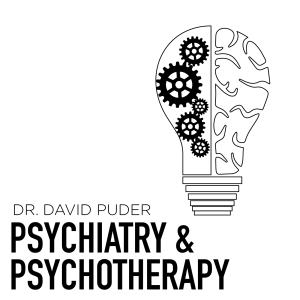
Advice for medical students applying to psychiatric residency
 2018-09-16
2018-09-16
Timothy Lee has talked to thousands of medical students about how to applying for residency programs, and here, he gives us a few tips on how to make it through the gauntlet, and how to have your best chance at landing the program you want.
Here is what Timothy Lee says:
Stay calmMany students have been fine tuning their personal statements, and trying to get their resume just right, or hurrying to press the faculty to write letters of recommendation. It can be very stressful.
It’s okay to turn in information a little bit later, in order to have all of the paperwork you need. It’s even okay to review your statement after you’ve already turned it in. No one will lower their opinion based on that. You will need to have applied for the majority of the programs you are interested in by early or mid-October, otherwise the program director might wonder if you’re applying to them later as a backup plan.
What matters in a personal statement?Every program director will have different opinions on what you write, and every program director will be looking for different things from your personal statement. For some people, it’s a chance to get to know the applicant a little bit. For others, it doesn’t really matter that much.
As long as your grammar and syntax are competent, you should be fine. Some people don’t worry about the format, and others are more particular. To be on the safe side, if you have access to a good mentor, run it by them. Also, don’t be too wordy—stick to a page and a half.
Do step scores matter?Step scores are a very convenient screening tool for what matters, but there are studies that show that step scores are not directly correlated to success in residency performance. They are helpful, but are not the end-all-be-all. It’s only one part of the picture of an applicant. However, if you are going for a highly-competitive school, you might need to worry about step scores a bit more.
Apply to the right number of programsThe number of programs is not the only way to increase your chance of success of getting in. Pay attention to the types of programs you are applying to as well. If you are applying for a good number of programs, make sure at least half of them are are ones you are a solid and potentially attractive candidate for.
Keep a good perspectiveUltimately, you are more than your CV, step score, or personal statement. If patients like you, that’s going to go a long ways. Your patients won’t know your scores, or where you graduated from medical school. They will know if you were competent, caring and connected. That is ultimately what matters.
More Episodes
 2020-02-22
2020-02-22
 2020-02-15
2020-02-15
 2020-02-08
2020-02-08
 2019-11-23
2019-11-23
Create your
podcast in
minutes
- Full-featured podcast site
- Unlimited storage and bandwidth
- Comprehensive podcast stats
- Distribute to Apple Podcasts, Spotify, and more
- Make money with your podcast
It is Free
- Privacy Policy
- Cookie Policy
- Terms of Use
- Consent Preferences
- Copyright © 2015-2024 Podbean.com





